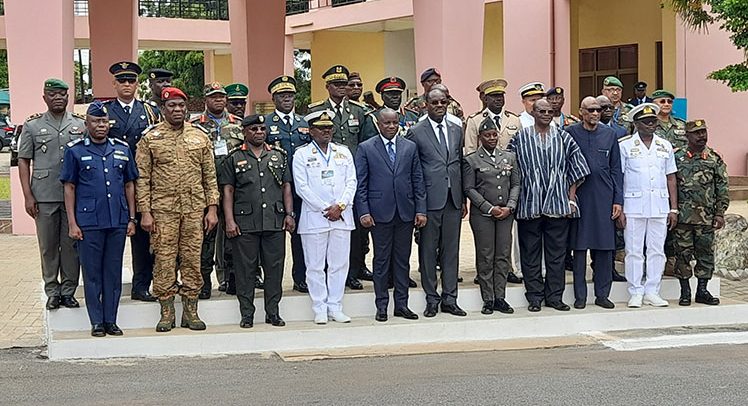The two-day conference of the Chiefs of the Defence Staff of West African countries has come and gone.
The conference took place at a time when West Africa bears the unenviable tag of ‘dangerous region’.
Although a despicable tag, it represents a true reflection of the sub-region many of whose membership still battle banditry, kidnappings, terrorism or armed robbery involving sophisticated firearms.
Even the most populous country in the sub-region with the largest military, Nigeria, is still in the woods trying to halt acts of banditry and kidnappings with many soldiers dying in action against the armed persons.
A couple of days ago, armed persons attacked a prison, opened it up and let out inmates in banditry-infested Burkina Faso, Ghana’s next-door neighbour.
Although there were no casualties, we can infer from the happening that the security forces guarding the facility thought it wise not to engage the invaders. That speaks volumes about the impunity of criminal elements in that country.
At the behest of the ECOWAS chairman, junta leaders from Mali, Burkina Faso and Guinea attended the conference. We take exception to the kid’s gloves treatment of junta leaders which only embolden them and perhaps encourage others to think about embarking upon useless and unproductive military adventurism, which is what the West African sub-region does not need at this time of her development.
In a world where such adventurism has become unattractive and anachronistic, the Conference of the Defence Chiefs should fashion out templates which would further relegate military adventurism to the background.
As the chairman of the Conference of Chiefs of Defence Staff, Ghana’s own CDS Vice Admiral Seth Amoama, pointed out during the closing session of the conference that there is the need for effective information and intelligence sharing not only among member countries but between civilians and the military.
In a sub-region with porous borders, reality, which enables criminals including bandits to travel with ease across countries, the importance of such sharing of intelligence should not be downplayed.
Congenial ambience should be created which would not only enable civilians understand some aspects of national security issues, but how to reach out to the military of the various countries with germane information of intelligence value.
Only collective efforts will keep bandits and terrorists at bay.
The isolated tackling of terrorists in countries where the problem is endemic will not reduce the menace they pose unless there is a common platform of member countries of the sub-region’s military actors on which strategies can be jointly formulated and implemented for the good of all.
Joint military exercises should be part of the strategies in countering terrorism, banditry and military adventurism.
When we allow the bandits and terrorists to master the art of breaching our borders, they would have entrenched their nuisance beyond their current hotspots.


